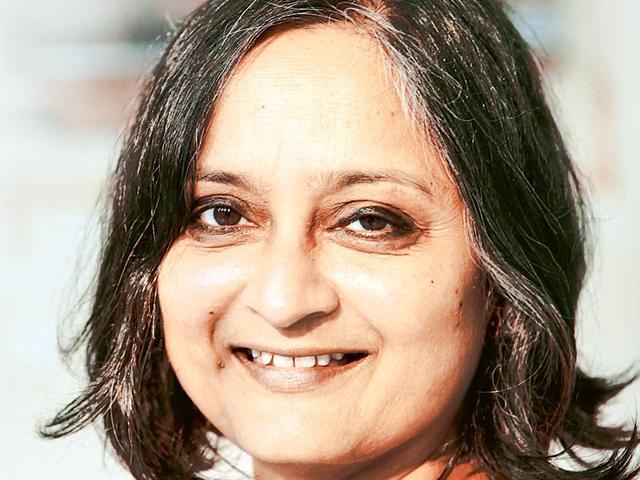Finding our home in the land of 'om'
I did not think of Dr Kalam as a hero and neither, I may safely generalise, did many other Hindus. I intensely disliked the pictures of him bowing to the statues of RSS ideologues.
I did not think of Dr Kalam as a hero and neither, I may safely generalise, did many other Hindus. I intensely disliked the pictures of him bowing to the statues of RSS ideologues. Like most of us, I condemn their divisive ideas and have been vilely abused by their trolls for things I wrote. But if the distinction between Hindus and hindutva grows increasingly blurred in public perception, it cannot be healthy for the body politic, can it?

Specifically, it is puzzling that scorn was heaped on Dr Kalam by some for being vegetarian and for liking Carnatic music. If I as a Hindu am free to enjoy aspects of 'Muslim' culture, was not Dr Kalam equally free to choose what appealed to him outside his inherited lifestyle?
If I, a Hindu, choose to eat beef and like Sufi music, I'm considered 'liberal'. But when a Muslim chose to turn vegetarian - like many other people in the world, not only Jains and some Hindus - and liked the music of his region, why was he reviled as "un-Muslim"? These were genuine personal choices. Surely we should all have the same freedom as Indians to make independent choices outside our inherited lifestyles and traditions without being sneered at?

Just so, the late Ustad Bismillah Khan loved to play the shehnai every morning for Kashi Vishwanath. Ustad Bade Ghulam Ali Khan, who found himself on the other side of the northwestern border at Partition, packed his bags for India when the head of Radio Pakistan refused to let him sing 'Hari Om Tat Sat' which was his beej mantra from his guru. Ustad Rashid Khan sings movingly and sincerely about Sri Krishna. Oscar-winning sound engineer Resul Pookutty famously declared at the prize-giving ceremony that he came from "the land of Om". These are but four examples from the vast and varied multicultural tapestry of 'being Indian' and they are all honourable choices, each one. All these great artistes were/are devout Muslims. Dr Kalam too was an observing Muslim, by all accounts, who prayed and fasted.
As for "doing something for Muslims", Dr Kalam did set a very good example by going to school despite being from a poor background and by doing well long before the politicians enlisted him. Moreover, he unreservedly thanked his Hindu school teachers for going the extra mile for him, which served as yet another good example of Indians transcending communal boundaries.
Music is undeniably a great meeting ground for our collective and individual mental health. But while we all enjoy rousing, foot-tapping rhythms and dhol-shor, perhaps it might be a good idea, as many Indians already do, to keep some daily headspace for at least twenty minutes of peaceful, gentle music. My list begins with 'Man tarpat Hari darshan ko aaj' by Mohammed Rafi, written by Shakeel Badayuni, tuned by Naushad. Were they 'bad Muslims' for that? So why sneer at Dr Kalam? That is totally unfair. We may criticize him for other things but not for his food habits and taste in music. By that logic, the trolls were justified in being abusive.





